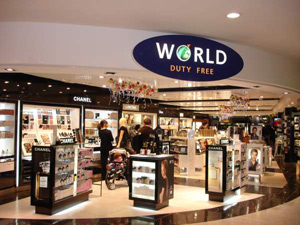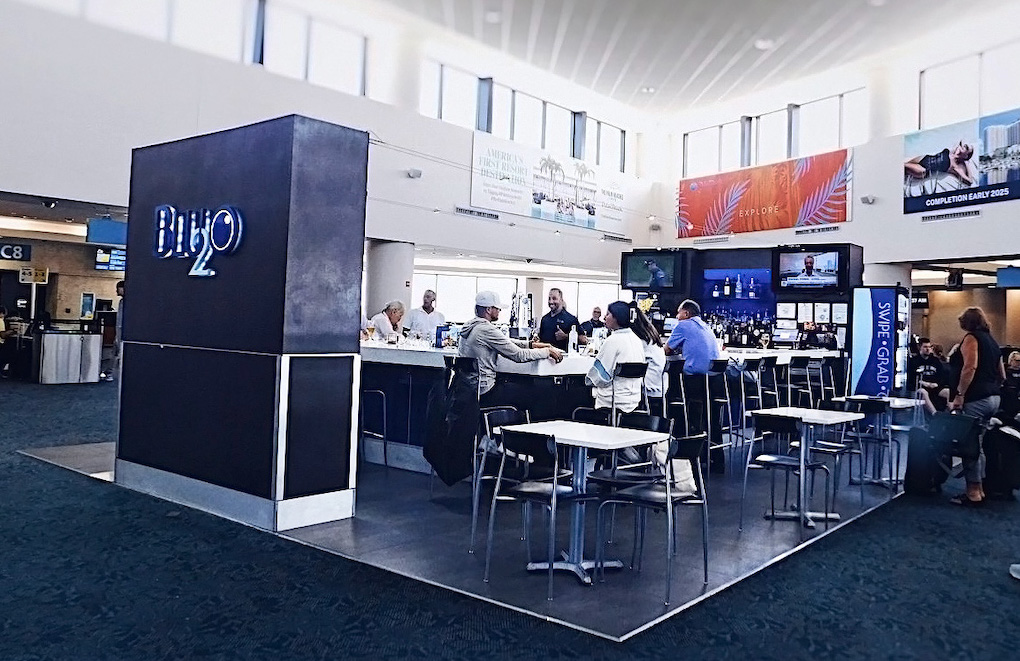UK. The Civil Aviation Authority (CAA) today cleared the way for a sale of World Duty Free, announcing that it was “not minded” to intervene in any divestment of the BAA retail subsidiary.
The regulator also provided significant clues to what will be on offer if World Duty is, as expected, formally offered for sale in coming weeks.
The CAA proposed three key undertakings (accepted by BAA) that the retail contract terms at BAA’s seven airports should be “no more” than 12 years; that the average concession fee as a percentage of gross sales should be “no lower than 31%”; and that any performance incentive scheme should not adversely affect users’ interests (see full explanation below).
The proposals are contained in the CAA’s proposals for price controls at London Heathrow and Gatwick airports for the five years from 1 April 2008 to 31 March 2013, published today.
As reported, BAA – owned by the Ferrovial-led consortium Airport Development and Investment Ltd (ADI), since the Summer of 2006 – has appointed Merrill Lynch to consider various strategic options relating to World Duty Free.
 |
 |
The beauty (above) and liquor offers at World Duty Free’s London Heathrow Terminal One stores are just part of a hugely attractive and diverse airport portfolio |
Given Ferrovial’s desire to pay down debt incurred by the BAA acquisition and regular indications from the Spanish group that World Duty Free was “non core”, many industry observers believed it was only a matter of time before the business was formally put on the market.
BAA has played down such suggestions over recent months, persistently maintaining no decision on the retailer’s future had been taken. Technically that was correct, for the fate of World Duty Free was inextricably wound up in the approach of the UK regulators.
Today’s CAA report was a response to the recent analysis and recommendations of the Competition Commission relating to Heathrow and Gatwick price control proposals. The value, role and fate of World Duty Free was an intriguing sub-plot within the wider airport story.
Today the CAA rejected some of the Competition Commission’s concerns presented in late September, finding no evidence that BAA had materially marked down the projected yields of World Duty Free to Heathrow and/or Gatwick between September 2006 and July, “by which time it was actively considering selling World Duty Free”.
It commented: “So there is no obvious rationale for the higher level of Civil Aviation Authority (CAA) scrutiny and oversight of the forthcoming sale of World Duty Free which the Commission advocated.
“The CAA is not minded to intervene in the sale of World Duty Free“ |
CIVIL AVIATION AUTHORITY |
“So the CAA proposes that the treatment of World Duty Free remains as at present: outside the regulated airport and single till, with concession payments from World Duty Free to each airport counted as retail revenues to the single till and the proceeds from any sale of World Duty Free not reflected in any downward adjustment to the regulatory asset bases of each airport.”
“Nevertheless,” it added in a crucial comment, “as the CAA suggested to the Commission, the CAA does consider that it would be prudent to seek some additional assurances from BAA as to the terms of the sale, with the objective of securing appropriate benefits for current and future airport users while leaving commercial opportunities for BAA and the future owners of World Duty Free.”
To that end, the CAA spelled out in full its proposals relating to any sale, referred to earlier.
– concession term no longer than 12 years, in line with trends for other major commercial concessions between BAA and other commercial partners and more broadly across other European airports;
– the central concession fee rate to be no lower than 31% of gross sales, broadly in line with the recent performance of World Duty Free;
– any incentive mechanisms under which reduced concession fees are paid on sales above a given threshold, higher than projected sales should be structured such that the incentive mechanism would only operate if World Duty Free outperformed current forecasts. The reduced fee would only apply to these incremental sales, and the incentive mechanism would only be linked to improved sales per passenger (and therefore not triggered by passenger growth), thereby protecting the currently forecast World Duty Free revenue contributions to the single till at each airport.
Notably, the CAA added:
– World Duty Free should remain outside the single till at each airport;
– the Q5 [the five-year period commencing 1 April 2008 -Ed] projections of retail revenues from World Duty Free to each of Heathrow and Gatwick, which form part of the CAA’s overall commercial revenue projections for each airport, are at a reasonable level, given the CAA’s statutory duties to further the reasonable interests of users and the efficient and profitable operation of the airports, and do not, in the CAA’s view, represent any undue transfer of value from the regulated single tills;
– the regulated asset bases at each airport should not be adjusted for any future sale of World Duty Free;
COMMENT: Today’s report – from which we have focused solely on the material relating to World Duty Free – is a 255-page tome, full of bureaucratic language and complexities.
But the sections relating to World Duty Free are clinically precise. For months, potential suitors have been waiting for today’s findings, not knowing what – if anything – would be on offer and with what conditions attached.
Potentially BAA/Ferrovial, through Merrill Lynch, can now package up a portfolio of seven valuable airport contracts with maximum tenures of a healthy 12 years each (more than most observers predicted) and with a minimum concession fee of 31% of gross sales.
There’s no doubt about it, the CAA has today effectively created a very valuable entity indeed for BAA to divest |
World Duty Free revenues for the nine months to 30 September rose +7.7% year-on-year to reach £306 million (US$623 at current exchange rates). Operating profit on that figure was £21 million, up by +11.6%, while net retail income from World Duty Free to BAA rose +9.2% year-on-year for the period to £122 million.
Those numbers help. But potential acquisitors can’t pull out their calculators just yet. They’ll be awaiting final confirmation of the contract tenures and, critically, the phasing (if any) of the contracts. It’s unlikely that all seven would start and finish on the same day, for example, and not all may run for the maximum 12-year term allowed.
But there’s no doubt about it, the CAA has today effectively created a very valuable entity indeed for BAA to divest. The portfolio contains seven airports – Heathrow, Gatwick, Stansted, Southampton, Glasgow, Edinburgh and Aberdeen – in the world’s most valuable duty free market and in Heathrow the richest duty free real estate on the planet.
Ferrovial may be “livid” about other findings in the report, according to UK media, but they must be delighted about the duty free findings. Despite the current severe market credit crunch, the terms and conditions of any sale may now attract private equity players as well as the certain trade bidders – notably Autogrill and Dufry.
Given today’s crucial wording – “the CAA is not minded to intervene in the sale of World Duty Free” – things are likely to move quickly. Similar situations would suggest offers will be called in coming weeks with a conclusion possibly as early as late first quarter 2008.
It’s all to play for – or, virtually certainly, it soon will be.
NOTE: For a full analysis of BAA’s nine-month revenues to 30 September click here
MORE STORIES ON THE POTENTIAL SALE OF WORLD DUTY FREE
BAA may be allowed further airport price hike – 20/11/07
Full Aldeasa takeover, then more acquisitions: Gilberto Benetton in deal-making mood – 14/11/07
World Duty Free revenues and operating profits flourish amid fall in BAA profits – 14/11/07





